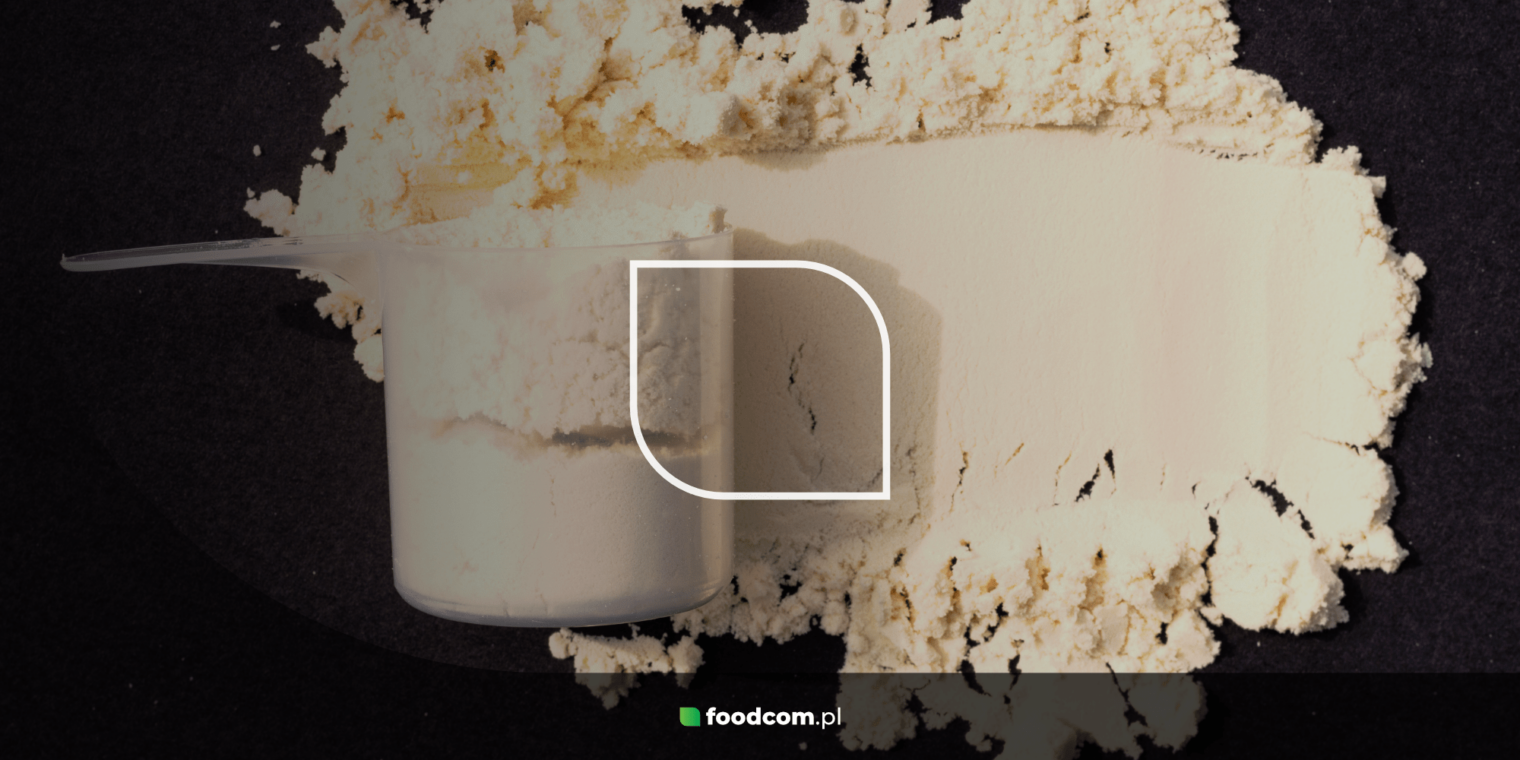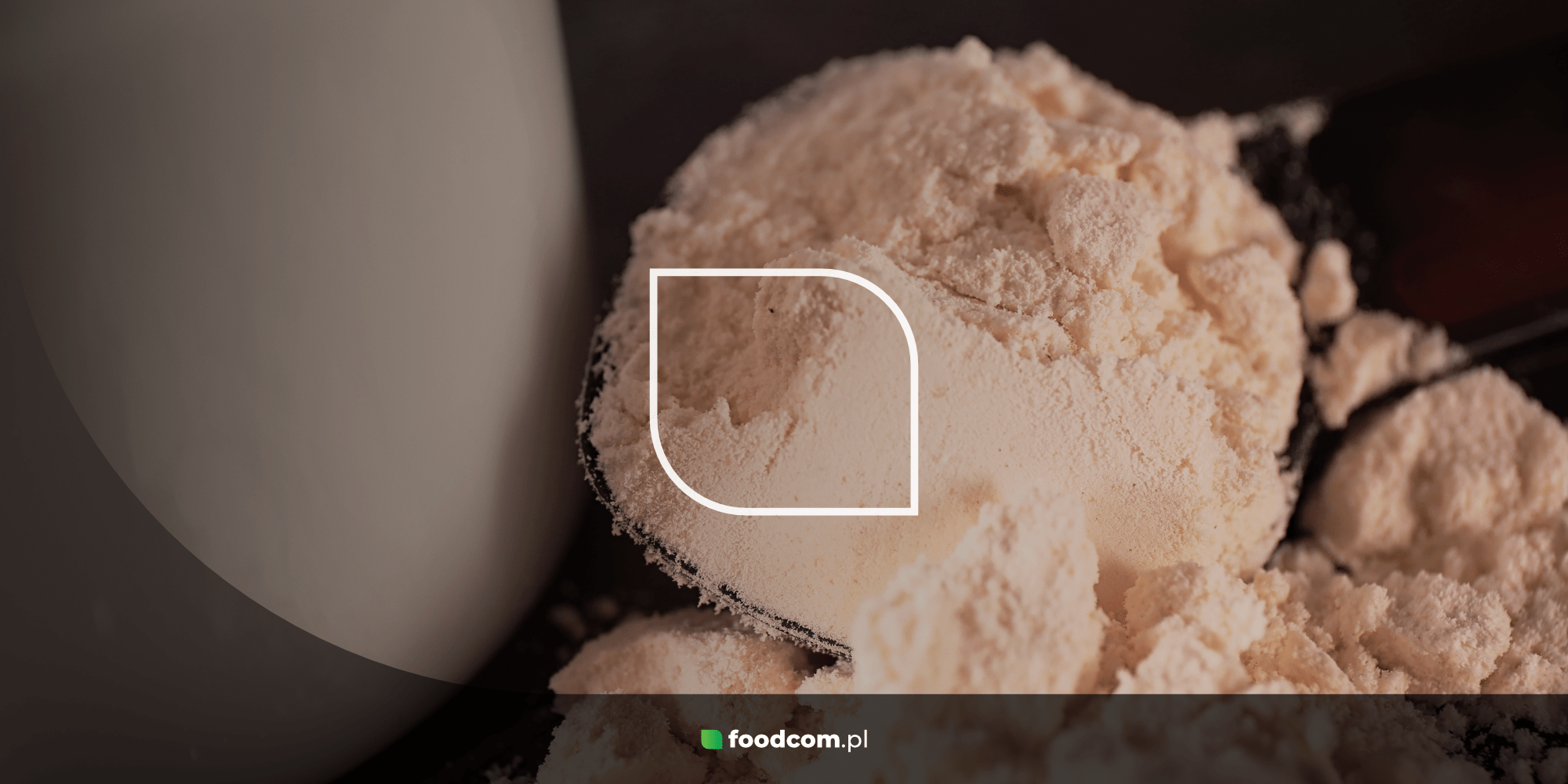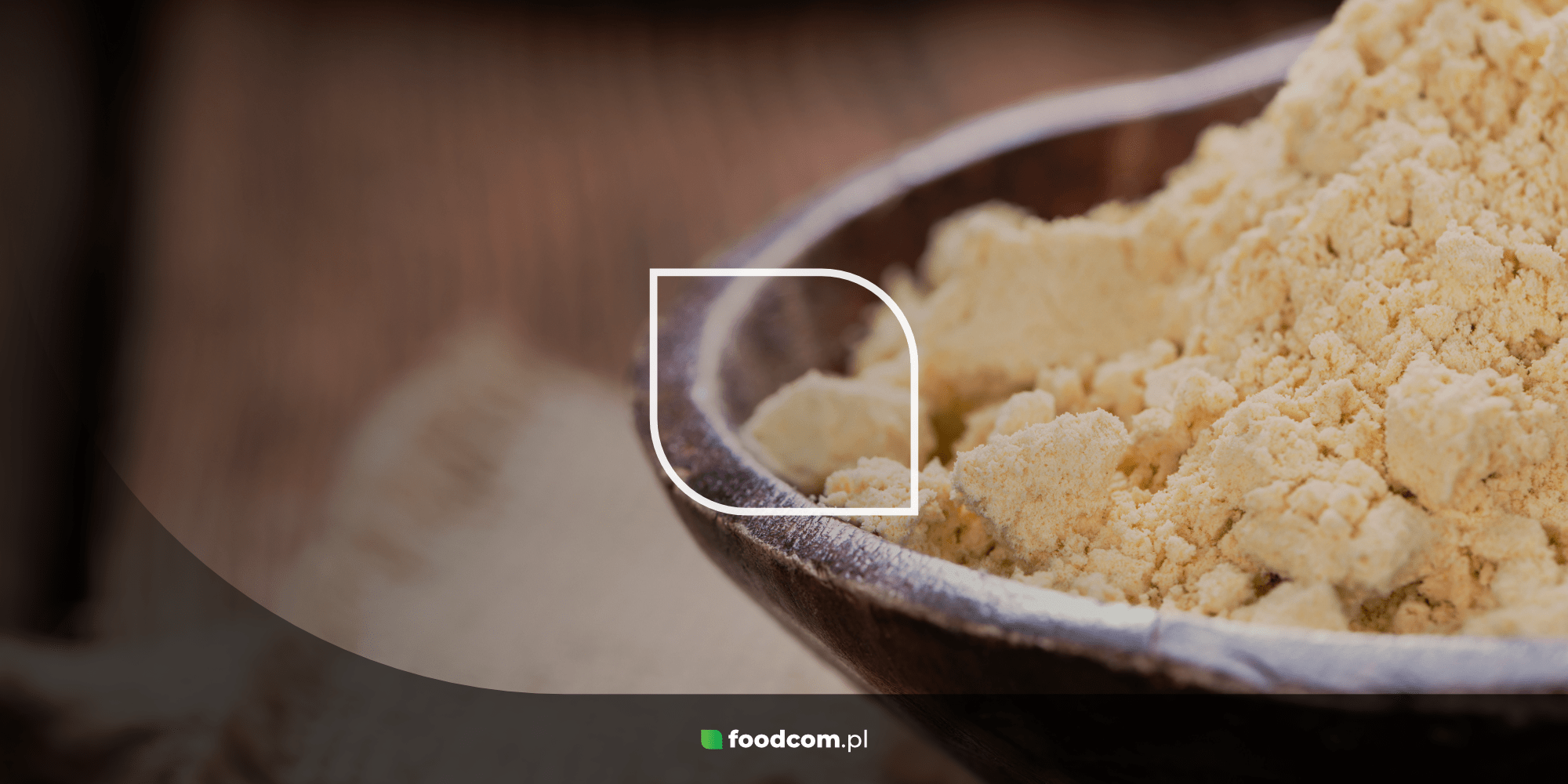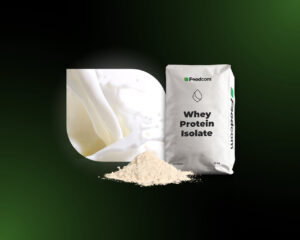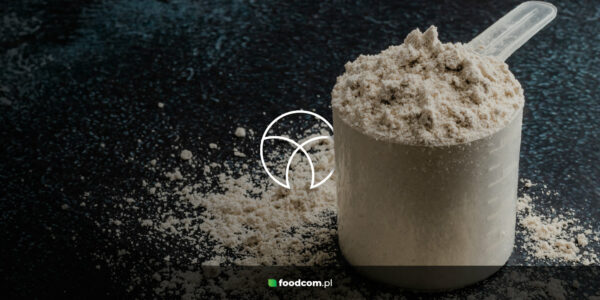- Protein isolates are products with a high protein content (85-90%), which support regeneration, muscle building and protein supplementation in the diet.
- The most popular isolate, whey protein isolate (WPI), is characterised by fast absorption, high nutritional value and low lactose content.
- More and more people are turning to plant-based protein isolates such as soy isolate as an alternative to animal proteins.
- Protein isolates are becoming increasingly popular among athletes, vegans and people who care about a healthy diet.
Protein isolates are now one of the most popular dietary supplements, especially among physically active people, athletes, people on a diet and vegans and vegetarians. Their popularity is no coincidence – they are products of high nutritional value, effectively supporting the regeneration of the body, building muscle mass and supplementing protein deficiencies in the daily diet.
What are protein isolates?
Protein isolates are nothing more than a product consisting of 85-90% protein. The most common is whey protein derived from milk whey, but egg or casein proteins are also used.
Vegetarians and vegans will appreciate plant proteins – derived from soya, hemp, pea or rice. Isolates of different origins have slightly different properties, amino acid profile and application, but their common denominator is high quality and bioavailability.
How are protein isolates produced?
Protein isolates are produced through a series of purification and filtration processes of the raw material, such as whey, using processes such as membrane separation or ion exchange. Their purpose is to remove most fats and carbohydrates, including lactose. This makes it possible to obtain a product that consists of up to 90% protein. This concentration makes them an excellent source of this macronutrient – especially for those who want to precisely control the composition of their diet.
Read more: Lactose – a key ingredient in dairy products
Whey protein isolate or whey protein concentrate?
The most popular isolate is whey protein isolate (WPI, Whey Protein Isolate). It is formed by micro- or ultra-filtration of whey – a by-product of cheese production. Compared to whey protein concentrate (WPC), whey protein isolate is characterised by higher purity, lower lactose content and faster absorption time. Whey protein isolate contains all essential amino acids (including BCAAs), which support anabolic processes in the body, as well as a fair amount of calcium. It is also easily digestible, making it suitable even for people with lactose intolerance – its content is no more than 1%.
Whey protein concentrate, on the other hand, usually contains 70 to 80% protein, while the rest is fats, carbohydrates and lactose. Concentrates have a more appealing taste and a lower price, but take longer to absorb and provide the body with more calories. Concentrate is an excellent addition to the daily diet for amateur trainers or those looking for additional sources of protein, but people on a reduction diet, those with lactose intolerance and athletes are more likely to reach for isolates.
Plant protein – an alternative for vegans and people with allergies
Plant protein isolates, especially soy protein isolate, are becoming increasingly popular. Soya is one of the few plant sources of protein containing a complete set of essential amino acids, so that soya isolate can successfully compete with animal proteins. It is readily used in vegetarian and vegan diets, as well as in the production of functional foods and nutritional supplements. In addition to soya, pea, hemp or rice protein isolates are also increasingly common.
There are many companies on the market that produce and distribute protein isolates. One of the prominent brands is Foodcom S.A. – a trusted supplier of high-quality protein isolates from both animal and plant sources.
Why are protein isolates so popular?
The popularity of protein isolates is due to their several unique benefits. First and foremost is the nutritional value of this product – the complete set of amino acids, low fat and sugar content, richness in minerals and rapid absorption make protein isolates a great addition to the diet.
They add nutritional value to meals and induce a feeling of long-lasting satiety, which makes them popular as additives to meals or desserts, ingredients in functional foods or protein bars. The high solubility of protein isolates and the variety of flavours also make them ideal for making protein drinks. At the same time, protein isolates are suitable for different consumer groups – from athletes and seniors to people on a diet and those suffering from food intolerances.
Protein in the diet of an athlete – the key role of protein isolates
Protein is one of the key macronutrients in an athlete’s diet. It is responsible for the reconstruction of muscle fibres, the synthesis of enzymes and hormones, as well as maintaining an adequate nitrogen balance. Depending on the type of activity and training goals, protein requirements may range from 1.2 to even 2.5 g per kilogram of body weight per day. In such cases, reaching for protein isolates is a quick, convenient and effective way of covering daily requirements without having to consume large quantities of meat or dairy and supplying the body with excess calories.
Protein isolates are a modern and efficient source of dietary protein. The right protein isolate helps meet the nutritional goals of athletes, as well as those working on weight loss or building muscle mass, and others who want to supplement their diet with protein.


